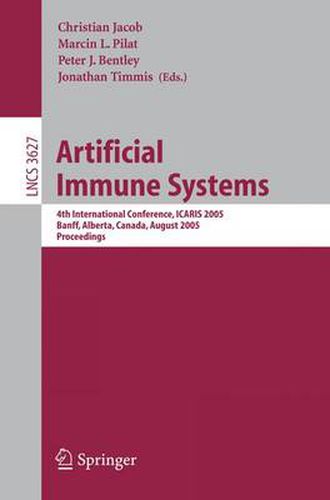Readings Newsletter
Become a Readings Member to make your shopping experience even easier.
Sign in or sign up for free!
You’re not far away from qualifying for FREE standard shipping within Australia
You’ve qualified for FREE standard shipping within Australia
The cart is loading…






This title is printed to order. This book may have been self-published. If so, we cannot guarantee the quality of the content. In the main most books will have gone through the editing process however some may not. We therefore suggest that you be aware of this before ordering this book. If in doubt check either the author or publisher’s details as we are unable to accept any returns unless they are faulty. Please contact us if you have any questions.
Your immune system is unique. It is in many waysas complex as your brain,but itisnotcentredinonelocation,likethebrain.Itisnotasingleorgan-itconsists ofmanydi?erentcelltypes,diversemethods ofintercellularcommunication,and many di?erent organs. Its functionality is blurred throughout you-we can’t extract the immune system, or point to where it begins and ends. The immune system is not separablefrom the system it protects. It has integrallinks to every organ of our bodies. Thishasradicalimplicationsforthe?eldofArti?cialImmuneSystems(AIS), that we are only now beginning to comprehend. One of the ?rst insights is that modelling the immune system, or developing any kind of immune algorithm, is di?cult. The immune system is one aspect of biology that we ?nd di?cult to apply simple reductionist explanations to. We can very successfully extract s- processes of the whole and create immune algorithms based on those processes. But we are always aware that we are missing the whole story. This is leading to more holistic views of immune algorithm development: theoretical analyses of how the sub-components contribute to the whole, and identi?cation of missing elements. Arti?cial immune systems are now beginning to incorporate ideas of innate as well as adaptive immunity, more complex intercellular communication mechanisms, endocrine and neural interfaces, concepts of tissue and broader ideas of organism and environment. SoperhapsthemostexcitingimplicationforthefutureofAISisthatthese- searchersareontheforefrontofunconventionalcomputing-mergingthe bou- aries between biology and traditional computation to achieve new emergent, embodied and distributed processing capabilities.
$9.00 standard shipping within Australia
FREE standard shipping within Australia for orders over $100.00
Express & International shipping calculated at checkout
This title is printed to order. This book may have been self-published. If so, we cannot guarantee the quality of the content. In the main most books will have gone through the editing process however some may not. We therefore suggest that you be aware of this before ordering this book. If in doubt check either the author or publisher’s details as we are unable to accept any returns unless they are faulty. Please contact us if you have any questions.
Your immune system is unique. It is in many waysas complex as your brain,but itisnotcentredinonelocation,likethebrain.Itisnotasingleorgan-itconsists ofmanydi?erentcelltypes,diversemethods ofintercellularcommunication,and many di?erent organs. Its functionality is blurred throughout you-we can’t extract the immune system, or point to where it begins and ends. The immune system is not separablefrom the system it protects. It has integrallinks to every organ of our bodies. Thishasradicalimplicationsforthe?eldofArti?cialImmuneSystems(AIS), that we are only now beginning to comprehend. One of the ?rst insights is that modelling the immune system, or developing any kind of immune algorithm, is di?cult. The immune system is one aspect of biology that we ?nd di?cult to apply simple reductionist explanations to. We can very successfully extract s- processes of the whole and create immune algorithms based on those processes. But we are always aware that we are missing the whole story. This is leading to more holistic views of immune algorithm development: theoretical analyses of how the sub-components contribute to the whole, and identi?cation of missing elements. Arti?cial immune systems are now beginning to incorporate ideas of innate as well as adaptive immunity, more complex intercellular communication mechanisms, endocrine and neural interfaces, concepts of tissue and broader ideas of organism and environment. SoperhapsthemostexcitingimplicationforthefutureofAISisthatthese- searchersareontheforefrontofunconventionalcomputing-mergingthe bou- aries between biology and traditional computation to achieve new emergent, embodied and distributed processing capabilities.